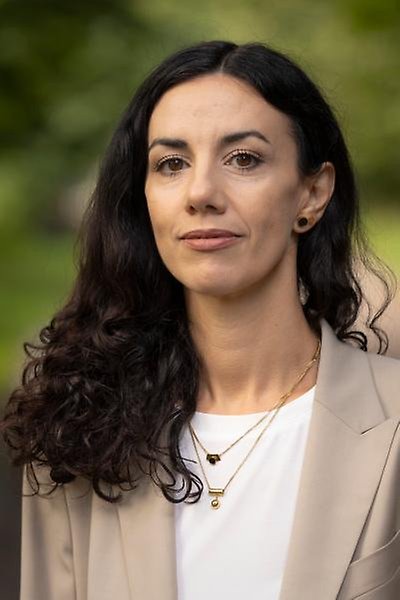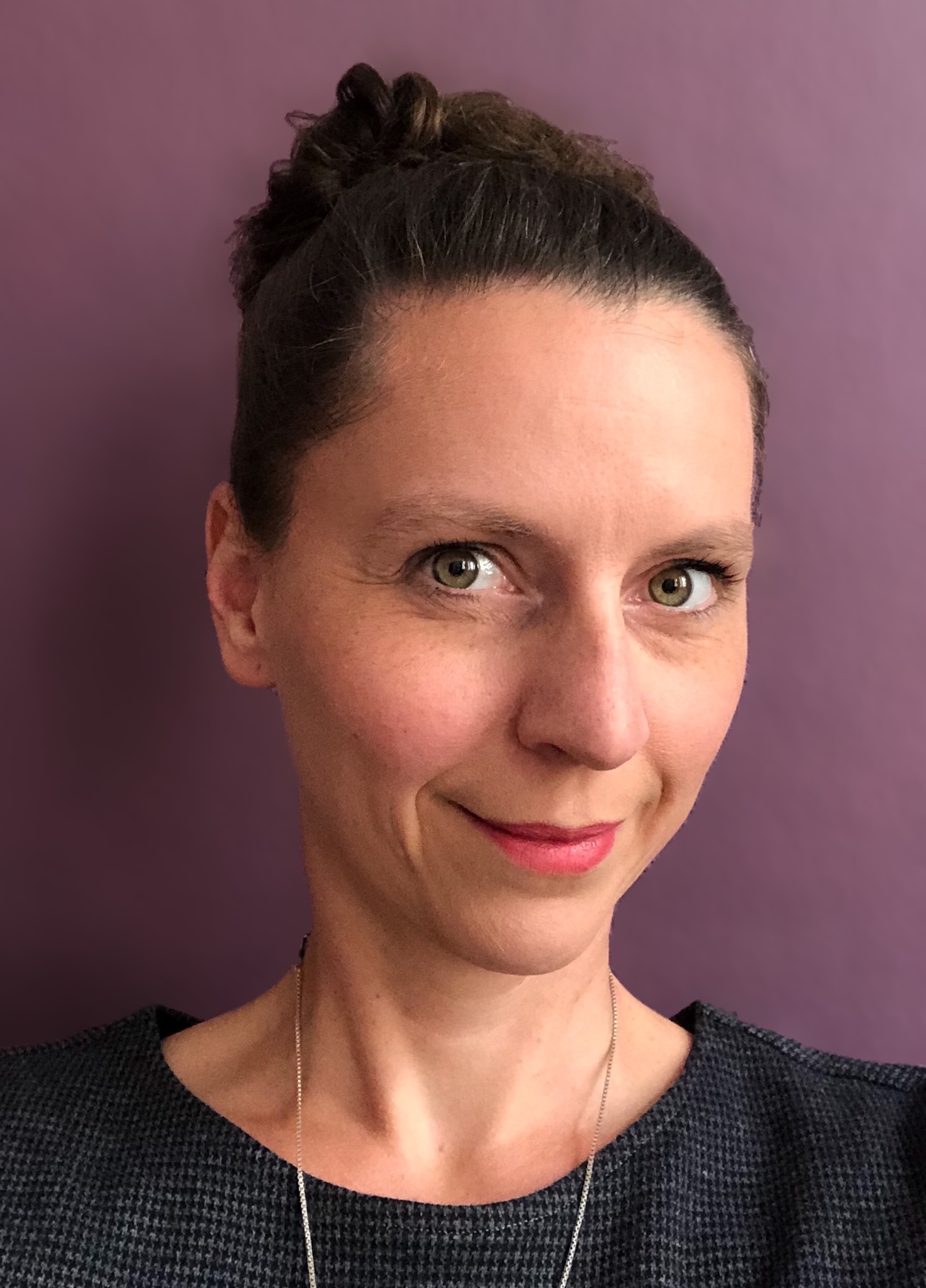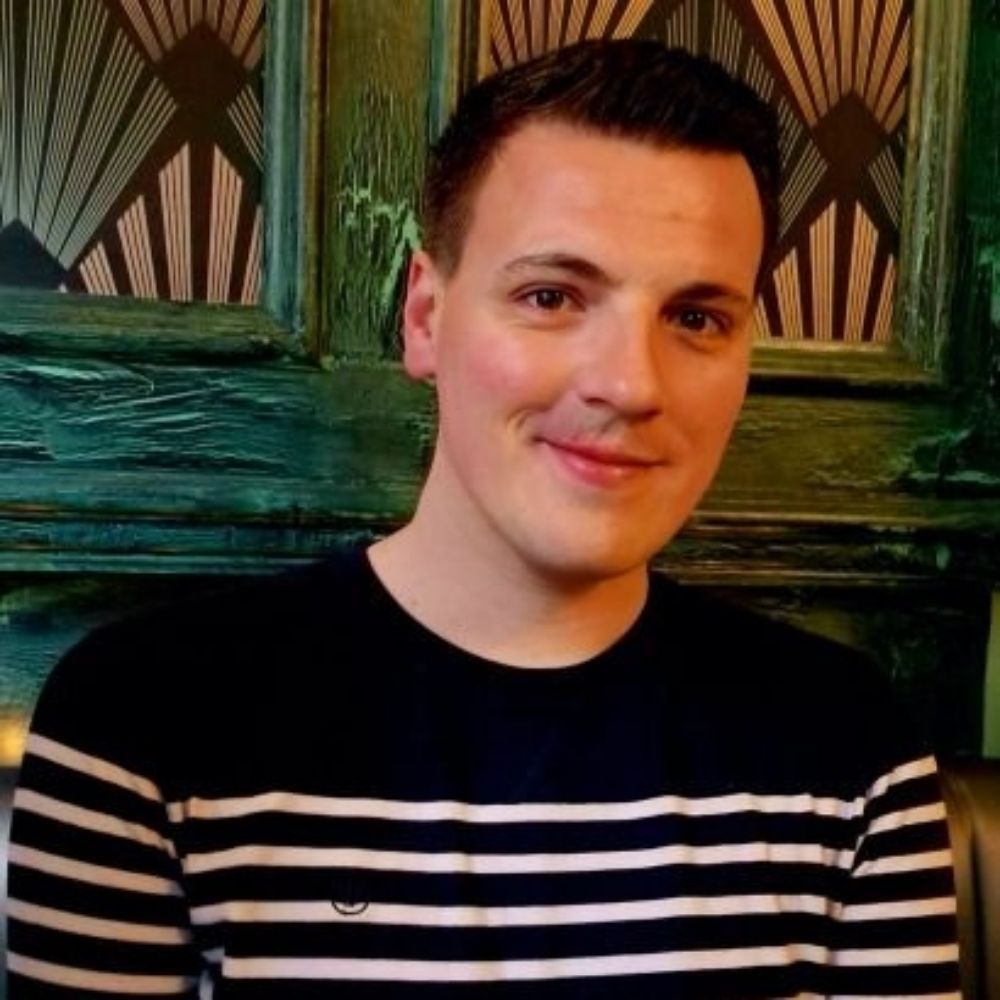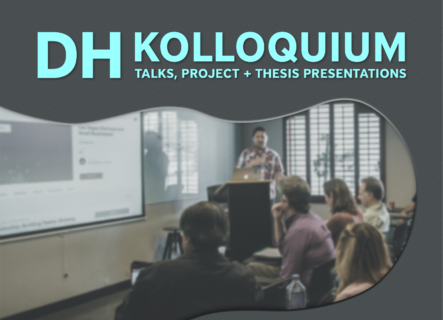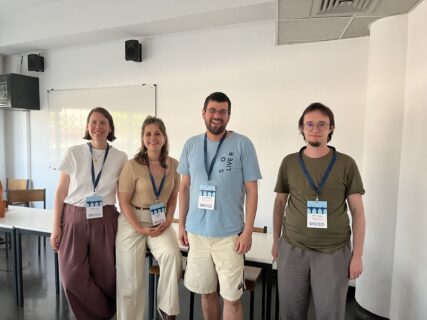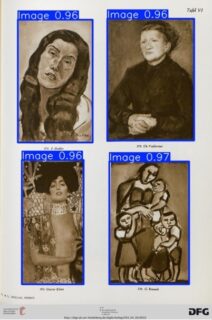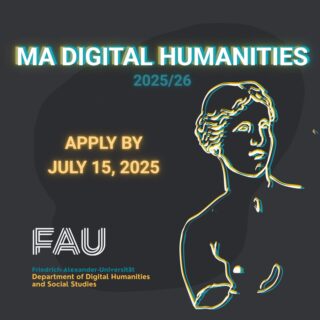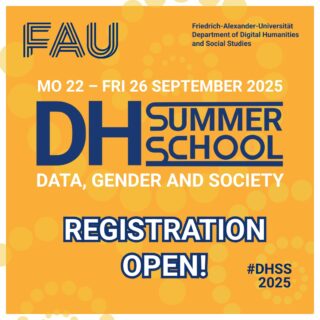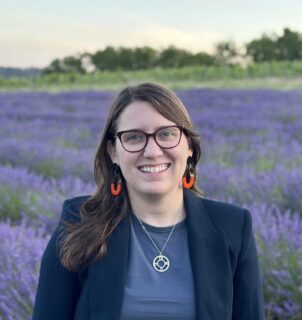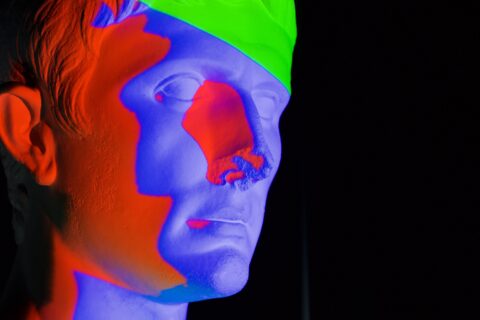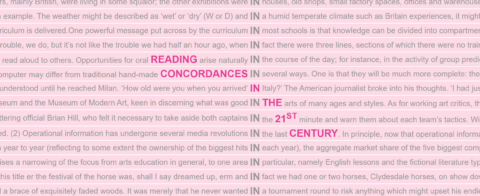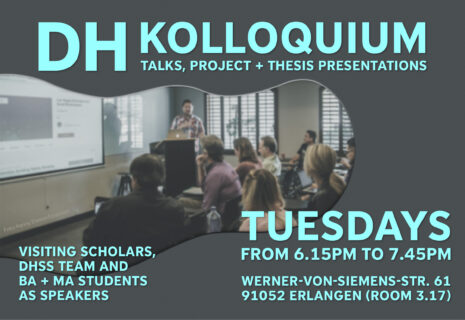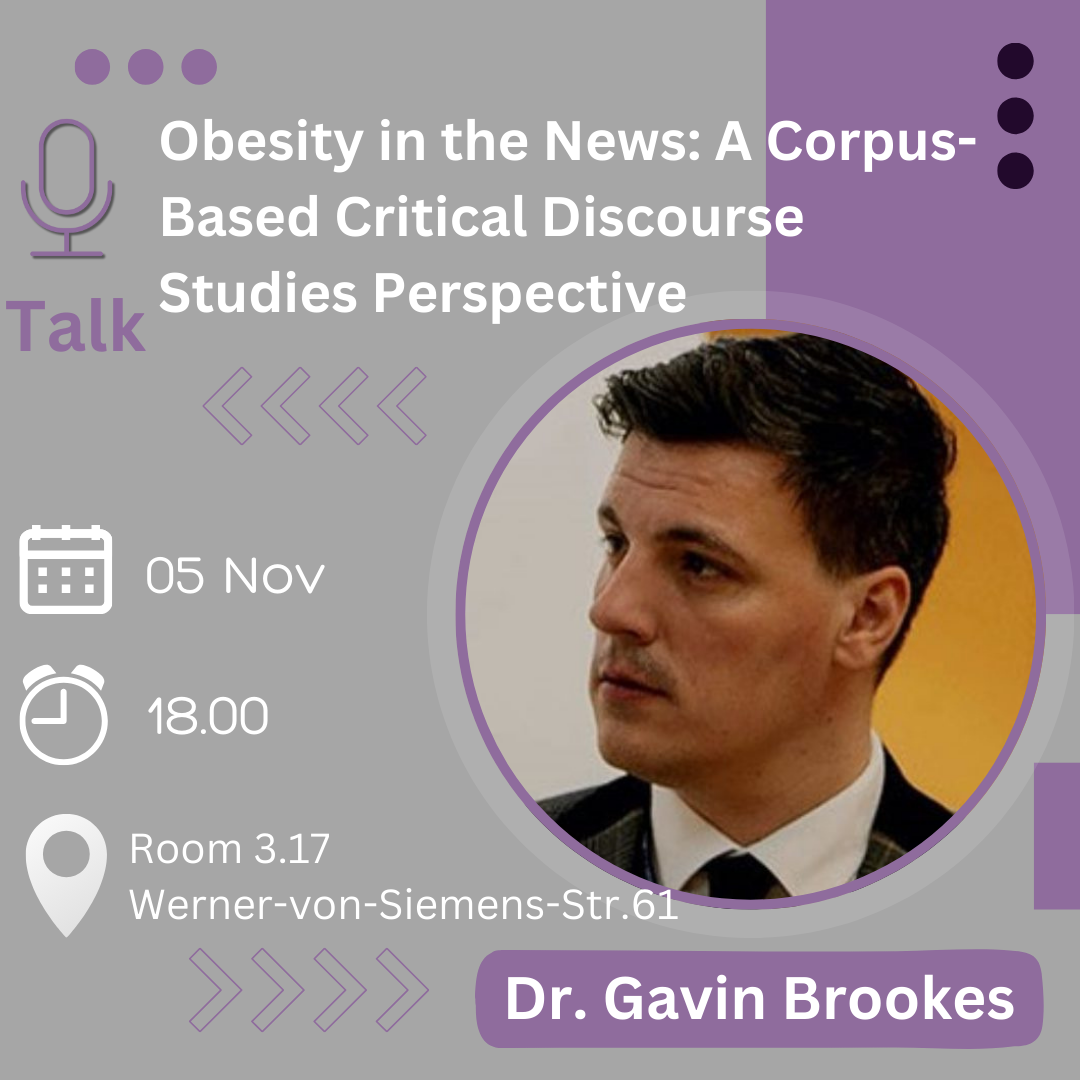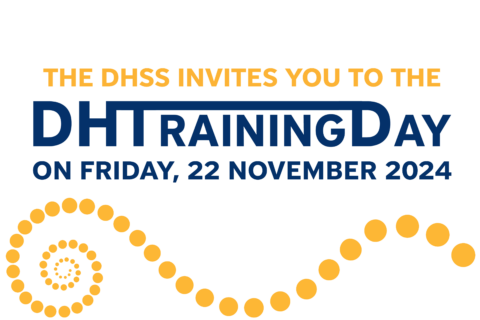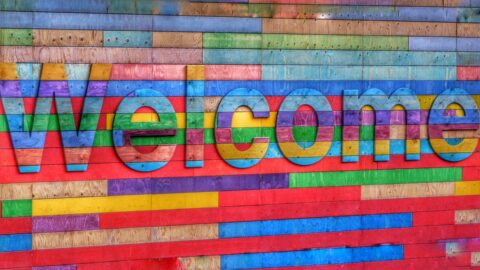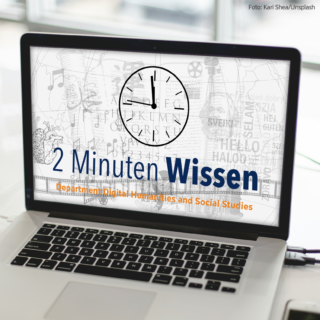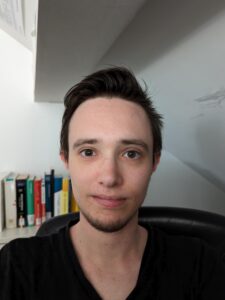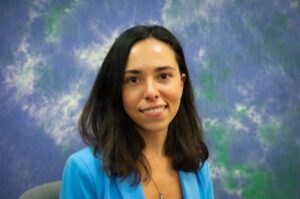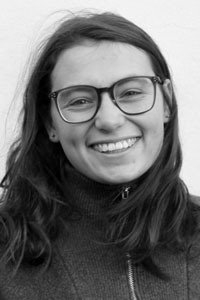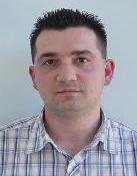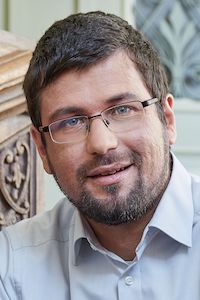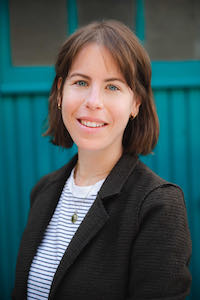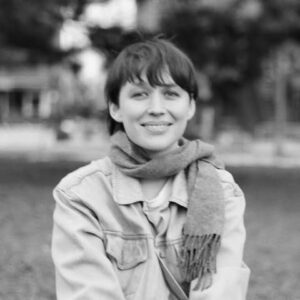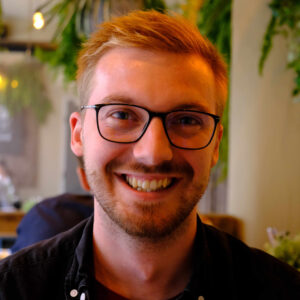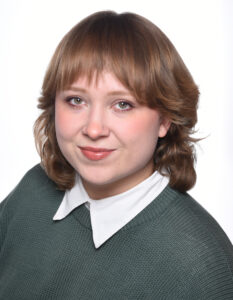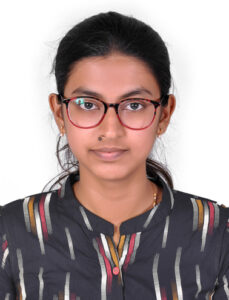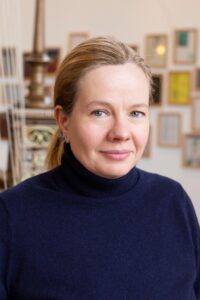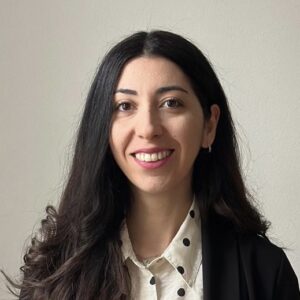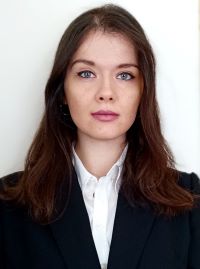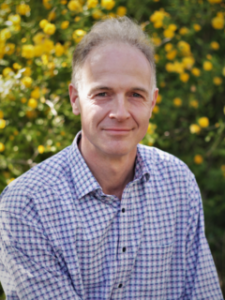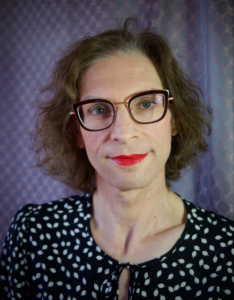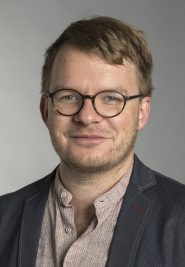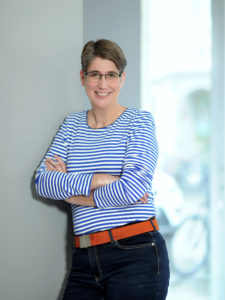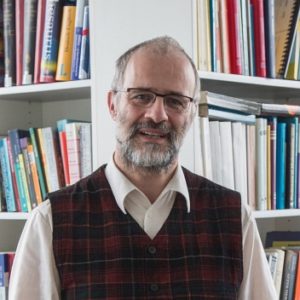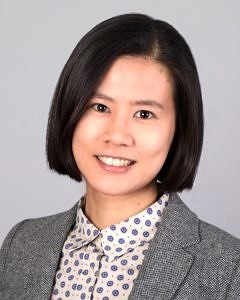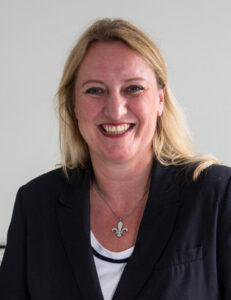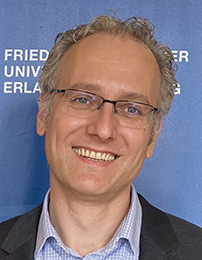Index
Digital Humanities Summer School 2025: Data, gender and society

📋Keynote Registration – FAU Innovation Days Attendees
If you are attending the FAU Innovation Days (view details), you have the opportunity to register for the keynote talks.
Digital Humanities Summer School 2025: Data, gender and society
Mo 22 – Fri 26 September 2025
The DHSS2025 summer school offers expert-led training in DH tools and methods. It will also offer opportunities to critically discuss the type of research questions that such tools and methods can help to answer. With a thematic focus on gender the summer school looks at the interrelationship between society and data.
The format of the training includes:
- Expert lectures with keynotes from leading Digital Humanities scholars
- Hands-on sessions to explore examples of tools and methods
- Participant presentation – the presentations offer participants an opportunity to share their own research in a short 5-minute talk.
- Visual abstracts workshop – in this workshop participants will create visual abstracts based either on the presentations they held or on a topic they can choose in the workshop
The number of places at the summer school is limited, so you will need to register early.
Fees – 95 Euro (Note: if you are joining FAU as an MA student in DH, registration will be free).
Accommodation – Participants will make their own arrangements, but we will provide information on hotels close to the venue
🎉We are delighted to announce our first keynote speaker, Anna Foka. Additional keynote speakers will be revealed soon.
Keynote Speakers
Anna Foka, Department of ALM Uppsala University
Title of Session: AI and Heritage: Critical perspectives on AI for the Archives, Libraries and Museum sector
Artificial Intelligence (AI) is expanding beyond the realm of computer science, significantly impacting various industries and facets of society. AI and Machine Learning are revolutionizing the fields of computer science and engineering, making professionals in these areas highly sought after. The future of AI is dynamic, already profoundly influencing education, professions, and society. However, there is a growing awareness of the dangers of over-relying on AI for every challenge. In this context, I advocate for embracing AI with a societal and humanistic sensibility. My focus is on the Archives, Libraries, and Museums (ALM) sector. Traditionally, professional decisions in ALM have been made by educated humans using their best judgment. However, machines are becoming increasingly influential in performing these tasks. The quality of machine decision-making is closely tied to the quality of the data and the parameters selected for classification. Using cultural heritage collections as an example, I discuss how AI offers new opportunities for access and engagement but also risks perpetuating historical biases embedded in these collections. I emphasize the importance of interdisciplinary collaboration among cultural heritage professionals, data scientists, and social scientists to identify and mitigate bias. We need to think together with machines to adopt a holistic approach to bias mitigation, integrating both technical and non-technical solutions to ensure that AI technologies contribute to a more inclusive society. I conclude with recommendations for future education, research, and practice, highlighting the need for ongoing monitoring and interdisciplinary collaboration to address the complexities of bias in AI applications within the cultural and creative industries, as well as in the training of professionals in the ALM sector.
Mareike Schumacher, University of Regensburg
Title of Session: Corpus compilation and gender-sensitive Analysis
A solid corpus is of fundamental importance for computational literary studies. When analysing rare and unusual phenomena or minority representation the compilation of a meaningful corpus is even more crucial. In this workshop participants will learn the most central aspects of corpus creation and work on different case studies hands on. The workshops especially highlights two perspectives of corpus creation: the authorial perspective and the perspective of (gender-sensitive) phenomena. Accordingly authorial gender of male, female and queer authors will be analysed as well as unusual gender depictions in literary texts using state-of-the-art machine learning techniques.
Gavin Brookes, Lancaster University (UK)
Title of Session: Corpus linguistics for gender and language research: Key concepts and critical reflections
In recent decades, corpus linguistic methods have gained increasing popularity (and importance) in the study of language and gender. This is, in part, because corpus approaches have enabled researchers interested in gender and language to move beyond anecdotal or intuition-based claims, and to instead ground their arguments in linguistic patterns that can be observed across large and representative corpora of authentic language use. Yet while productive, the interaction of corpus methods with language and gender research also raises a series of critical considerations. These include, for example: the challenge of operationalising gender-related concepts without reifying potentially harmful binary categories; navigating the limits of frequency- and form-based methods when investigating discursive phenomena that might be implicit or context-dependent (as expressions of gender-based bias or oppression often are); and accounting for intersectional identity performances in corpora that have not been designed for sociolinguistic research. Through a series of wide-ranging case studies, this talk will illustrate some of the ways in which corpus methods can be used within gender and language research. These examples will serve as a means of introducing key concepts and techniques in corpus linguistics, while also acting as a springboard for reflecting on the kinds of critical considerations outlined above, and more besides.
Workshop and Excursion during the Summer School!
„Open Culture: Modelling the Germanisches Nationalmuseum in Wikidata“
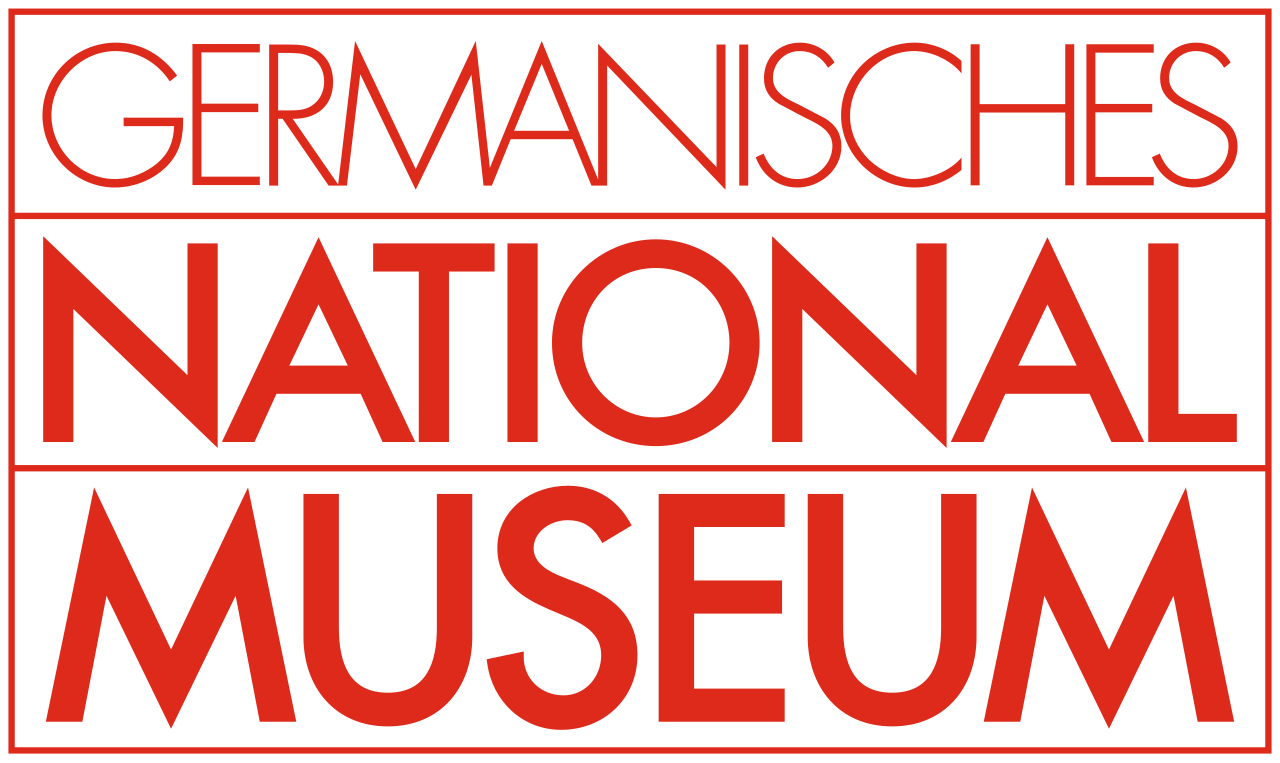
Abstract
Have you ever wanted to work with Wikidata? Or model information for cultural artefacts that you have seen in real life? The workshop “Open Culture: Modelling the Germanisches Nationalmuseum in Wikidata”, which takes place during the DHSS-summer school “Data, Gender and Society”, allows you to just do that. Participants will use the knowledge base, Wikidata, to create structured, FAIR data, using artefacts from the Germanische Nationalmuseum Nürnberg (GNM) and the information provided in the online catalogue. The proximity of the museum provides a rare opportunity to see some of the objects in person. The summer school therefore includes a trip to Nürnberg, where participants will have the opportunity to visit the GNM on a tour led by Sabine Lang.
The Germanische Nationalmuseum in Nürnberg has a collection of over 1.3 million objects, of which only 25,000 are currently on display. These include paintings, wall hangings, medical instruments, prints, furniture and sculptures dating from prehistory to the 20th century. Alongside their physical presentation, almost 200,000 objects are published in the online catalogue, complete with descriptive metadata, allowing worldwide access to the collection. As the GNM is increasingly publishing its collection and information digitally, this information is ready to be connected and transformed into FAIR and Linked Open Data. During the workshop, participants will either create new items on Wikidata or add information to existing ones (e.g. provenance information). As the summer school’s theme is focused on gender, we will especially study objects created by female artists. The workshop encourages participants to work with and create structured data, as well as critically evaluate this process. Should everyone have access to the data, and be able to use, share and adapt it? How should we deal with discriminatory language?
Summer School-Waiting List Form
Please note: Registration is closed! However, you can join our waiting list below. We will contact you if a spot becomes available.
Attending the FAU Innovation Days? Join Our Keynote Talks!
If you plan to be at the FAU Innovation Days (more info), you can reserve your spot at our keynote lectures by filling out the form [here].
You may select one, two, or all three keynotes (subject to availability).
Please include DHSS2025 in the subject line
Previously at DHSS
Explore highlights and resources from our previous event Digital Humanities Training Day 2024 (DHTD 2024).
📰 Stay Informed About Future DHSS Events – Join Our Newsletter
Call for Papers: Miniconference on the temporal dimension of data
Call for Papers: Miniconference on the temporal dimension of data–“The times they are a-changin’” in Digital Humanities–hosted by the 2025 International Digital Humanities Conference, Lisbon, Portugal, and organized by the DHSS team
📅Save the Date: July 15th (DH2025 Pre-Conference Program)
Digital Humanities Conference “Accessibility and Citizenship” 2025, 14 – 18 July 2025, Lisbon, Portugal
Digital Humanities (DH) methods have advanced significantly in recent decades. However, several blind spots still persist across the field, the insufficient attention to temporal dynamics in data being one of them.
Temporal change plays an integral role in a number of disciplines within DH, affecting data, methodology, analyses, and the field itself (Glawion et al. 2025). Digital art history, especially provenance research, is challenged by changing or missing object information, such as varying titles (Kim 2015) or attributions (Hofbauer 2021), complicating access and tracing their (ownership) history over time and space. In geographical studies on mobility, this movement in space and time is mediated by practices of sense-making changing slowly over time (Creswell 2010). Discourse analysis examines time frames around key public events that set specific communicative strategies in motion (Islentyeva 2022), corpus-based studies employ quantitative linguistic analyses to generate meaningful time periods for studying linguistic change (e.g., Gries & Hilpert 2008), and studies of register, text varieties associated with the situation of use (Biber & Conrad, 2019), are beginning to examine emergence and evolution of registers as cultural constructs (Gracheva et al., forthcoming). Digital Literary Studies raise questions about cultural evolution (Sobchuk 2023), genre history (Wagner-Egelhaaf 2014) and editorial histories of literary works (Bottigheimer 1987) on the level of texts, the evolution of authorial style over the course of an author’s life (Piper 2018) and different types of time-series data such as eye movements and EEG data in empirical studies of reader-response (Dimigen et al. 2011; Weitin et al. 2024).
We particularly invite proposals that relate to the theme of temporal change, including but not limited to the following questions: How should we address temporal change methodologically in DH? What role should visualizations play? Are time periods implemented to categorize data from the start (top-down), or are they the result of data-driven classification (bottom-up)? And how can we ensure that project data remains FAIR (Findable, Accessible, Interoperable, Reusable) across disciplines long after the project concludes?
Target audience:
The mini-conference welcomes researchers from all career stages from diverse disciplines and backgrounds who are engaged with the temporal dimensions of data. We encourage submissions from those involved in DH, data analysis, historical studies, linguistic and literary research, art history, geo-spatial studies and related fields.
Submission types:
The mini-conference invites submissions of finalized projects or work-in-progress reports on theoretical or methodological reflections, empirical studies, and/or practical applications on the topic of time in DH (15 min. + 15 min. discussions). Submissions can focus on but are not limited to the domains of “images & objects”, “text & language” and “place & space”.
Submission format and deadline:
Submissions should include a presentation title, the presenter’s affiliation, and an abstract of max. 250 words (bibliography excluded). Please submit the information as a PDF to anastasia.glawion@fau.de. The submission deadline is April 10, 2025; acceptance notifications will be sent out by April 30, 2025. The conference will be held in English.
Please note: For questions, contact anastasia.glawion@fau.de.
Bibliography
Biber, D., & Conrad, S. (2019). Register, genre, and style. Cambridge University Press.
Bottigheimer, R. B. (1987). Silenced women in the Grimm’s tales: The ‚fit‘ between fairy tales and society in their historical context. In R. B. Bottigheimer (Ed.), Fairy tales and society: Illusion, allusion, and paradigm (pp. 115–133). University of Pennsylvania Press. https://doi.org/10.9783/9780812201505
Cresswell, T. (2010). Towards a politics of mobility. Environment and Planning D: Society and Space, 28(1), 17–31. https://doi.org/10.1068/d11407
Dimigen, O., Sommer, W., Hohlfeld, A., Jacobs, A. M., & Kliegl, R. (2011). Coregistration of eye movements and EEG in natural reading: Analyses and review. Journal of Experimental Psychology: General, 140(4), 552–572. https://doi.org/10.1037/a0023885
Glawion, A., Kremer, D., Lang, S., Mahlberg, M., & Wagner, A. (2025). Applied digital humanities: Calling for a more engaged digital humanities. In Digital Humanities im deutschsprachigen Raum (DHd), Bielefeld, Book of Abstracts (pp. 298–301). https://doi.org/10.5281/zenodo.14942990
Gracheva, M., Keller, D., & Egbert, J. (forthcoming). Evolution of registers as cultural constructs: The case of blogs.
Gries, S. Th., & Hilpert, M. (2008). The identification of stages in diachronic data: Variability-based neighbor clustering. Corpora, 3(1), 59–81. https://doi.org/10.3366/E1749503208000075
Hofbauer, M. (2021). Cranach: Parerga und Paralipomena: Neues zu Lucas Cranach und seinen Söhnen. arthistoricum.net. https://doi.org/10.11588/arthistoricum.722
Islentyeva, A. (2022). British media representations of EU migrants before and after the EU referendum. CADAAD Journal, 14(2), 1–20. https://doi.org/10.21827/cadaad.14.2.41617
Kim, S. (2015). Bildtitel: Eine Kunstgeschichte des Bildtitels. Kovač.
Piper, A. (2018). Enumerations: Data and literary study. University of Chicago Press.
Sobchuk, O. (2023). Evolution of modern literature and film. In J. J. Tehrani, J. Kendal, & R. Kendal (Eds.), The Oxford handbook of cultural evolution (1st ed.). Oxford University Press. https://doi.org/10.1093/oxfordhb/9780198869252.013.45
Wagner-Egelhaaf, M. (2014). Literaturgeschichte als operative Fiktion. In M. Buschmeier (Ed.), Literaturgeschichte: Theorien – Modelle – Praktiken. Studien und Texte zur Sozialgeschichte der Literatur (Vol. 138, pp. 86–101). http://d-nb.info/1032799404/04
Weitin, T., Fabian, T., Glawion, A., Brottrager, J., & Pilz, Z. (2024). Is bad fiction processed differently by the human brain? An electrophysiological study on reading experience. Frontiers in Human Neuroscience, 17, Article 1333965. https://doi.org/10.3389/fnhum.2023.1333965
Stellungnahme zum „Verbot“ von mehrgeschlechtlichen Sonderzeichen
Das DHSS setzt sich für Diskriminierungsfreiheit und eine inklusive Sprache ein und trägt die Stellungnahme des Interdisziplinären Zentrums Gender – Differenz – Diversität (IZGDD) vollumfänglich mit:
„Seit Inkrafttreten wird über das Verbot und dessen Ausmaß dergestalt berichtet und kommuniziert, dass es an vielen Stellen zu Verunsicherungen kommt. Das Verbot wurde in § 22 Abs. 5 Nr. 2 AGO (Allgemeine Geschäftsordnung für die Behörden des Freistaats Bayern) eingeführt und gilt ausschließlich für den dienstlichen Schriftverkehr und die Normsprache. Forschende und Lehrende sind damit allein in der Ausführung von Verwaltungsaufgaben an das Verbot gebunden. Auf die Forschung und Lehre hingegen darf sich das Verbot aufgrund der verfassungsrechtlichen Freiheit von Wissenschaft, Forschung und Lehre nicht auswirken, worauf die Universitätsleitung in einer Rundmail und einer Handreichung auch hingewiesen hat (vgl. hier). In Vorlesungen, Seminaren und Publikationen dürfen entsprechende Sprachformen weiterhin verwendet werden. Das Verbot hat also einen deutlich engeren Anwendungsbereich, als häufig kommuniziert und verstanden wird. Dennoch ist es unserer Ansicht nach aus rechtlichen, linguistischen und gesellschaftlichen Gründen klar abzulehnen.
Im Oktober 2017 urteilte das Bundesverfassungsgericht, das Fehlen einer Geschlechtsoption im Personenstandsregister für nicht-binäre Personen verstoße gegen das allgemeine Persönlichkeitsrecht sowie gegen das Diskriminierungsverbot. Damit wurden die Rechte von Personen, die sich nicht in binären Kategorien in Form von ‚männlich‘ und ‚weiblich‘ identifizieren, wesentlich gestärkt. Dieser rechtliche Schutz muss auch auf sprachlich-kommunikativer Ebene berücksichtigt werden. Ein Verbot von Formen, die mit den entsprechenden Sonderzeichen (Asterisk, Doppelpunkt, Unterstrich etc.) gebildet werden, verletzt die Rechte nicht-binärer Personen aus unserer Perspektive auf unzulässige Weise: Durch das Verbot werden die Möglichkeiten stark eingeschränkt, nicht-binäre Personen korrekt an- und korrekt über sie zu sprechen. Damit wird ein wesentliches Mittel für eine diskriminierungsfreie Kommunikation, die nicht nur einzelne Themen- und Forschungsbereiche, sondern das gesamte universitäre Miteinander betrifft, genommen. Den Mitgliedern von Schulen, Hochschulen und Behörden – die im Übrigen auch durch das Grundgesetz zu Diskriminierungsfreiheit verpflichtet sind – sollte die Freiheit, wie sie durch Sprache Gleichbehandlung ausdrücken möchten, weiterhin selbst überlassen sein. Das genannte Verbot bewirkt gerade das Gegenteil und geht sowohl an der rechtlichen als auch an der komplexen gesellschaftlichen (Geschlechts-)Realität vorbei.“
Stellungnahme des IZGDD vom 24. Mai 2024
Gründung und Hightech Agenda Bayern
Im Januar 2021 wurde das Department für Digital Humanities and Social Studies aus Mitteln der Hightech Agenda Bayern gegründet.
Das Department wurde entwickelt und beantragt von
-
Prof. Dr. Peter Bell, Digital Humanities Schwerpunkt Kunstgeschichte (Phil)
-
Prof. Dr. Stephanie Evert, Computational Corpus Linguistics (Phil)
-
Prof. Dr. Georg Glasze, Kulturgeographie (Nat)
-
Prof. Dr. Svenja Hagenhoff, Buchwissenschaft, insb. E-Publishing und Digitale Märkte (Phil)
-
Prof. Dr. Michael Kohlhase, Wissensrepräsentation und -verarbeitung (Tech)
-
Prof. Dr. Andreas Maier, Machine Intelligence (Tech)
-
Prof. Dr. Heidrun Stein-Kecks, Kunstgeschichte (Phil)
Disziplinübergreifende Problemfelder für die neuen HTA-Professuren
Research-oriented Data Management in the Humanities
Datenbestände der Humanities sind hochkomplex, da sie in ihrer formalen Beschaffenheit (Text, Bild, Ton, Ziffern, Georeferenzen, ganze Modelle) divergent sind und in ihrer Semantik uneindeutig; eine Ablage in Relationen und Auswertungen per SQL-Statement ist i.d.R. untauglich. Benötigt werden Konzepte zum Umgang mit diesen Datenbeständen entlang des gesamten Datenlebenszyklus.
Computing Images & Objects in Cultural Heritage
Bildmedien und Objekte sind Entitäten mit hochkomplexer Attributstruktur, die als realweltliche Gegenstände Kultur materialisieren und binden und soziale Strukturen durch ihre Beschaffenheit und ihr symbolisches Kapital schaffen. Ihre computergestützte Analysierbarkeit, die digitale Repräsentation/Rekonstruktion und die bildwissenschaftliche Reflexion sind Arbeitsfelder mit interdisziplinärem Nutzen.
Computing Text and Language
KI und Computerlinguistik erzielen beeindruckende Fortschritte in der automatischen Sprachverarbeitung mittels hochkomplexer neuronaler Netze, die aber opake end-to-end-Systeme darstellen. Solche Verfahren müssen interpretierbar sein, um sie für die Humanities nutzbar zu machen. Automatische und semi-automatische Verfahren zur hermeneutischen Textinterpretation und Verbindungen zwischen statistisch-neuronalen Methoden der Sprachverarbeitung und formalen Wissensrepräsentationen sind innovative Felder mit breitem Einsatzpotenzial.
Seit 01.04.2024 besetzt durch Prof. Dr. Michaela Mahlberg
Analysing Geo- and Social Data
Immer mehr soziale Prozesse werden datafiziert. Diese neuen »sozialen Daten« sind in Echtzeit verfügbar, Aktivitäten und Personen räumlich lokalisierbar. Die resultierenden Möglichkeiten des Einblicks in räumliche Strukturen und soziale Dynamiken gehen weit über etablierte Statistiken hinaus: die neuen Formen der Steuerung sozialer Prozesse müssen verstanden und hinsichtlich ihrer gesellschaftlichen Veränderungskraft beurteilt werden.
Vertretungsprofessur im SoSe 2024: Prof. Dr. Florian Rabe
Human Computer Interaction
Die Gesellschaft für Informatik hat die Allgegenwärtige HCI als eine der großen Herausforderungen für das Digitale Zeitalter identifiziert: die Benutzbarkeit von Systemen entscheidet maßgeblich über Erfolg und Teilhabe von Menschen an gesellschaftlichen Teilsystemen und das Verhalten von Menschen wird davon beeinflusst, dass immer mehr Kommunikation mit Anwendungen stattfindet. Der adäquaten Gestaltung von Bedienoberflächen im Prozess der Systementwicklung kommt damit eine immer größere Bedeutung zu.
Governing of Data Economies
Daten und datenbasierte digitale Artefakte sind Ressourcen, die Grundlage von Interessen und Geschäftsmodellen (»Daten-Opec«) ganz verschiedener Akteure sind. Es ergibt sich ein Spannungsfeld aus Gestaltung von Verwertungsmöglichkeiten, Schutzinteressen und Souveränitätszielen sowohl auf der Ebene von Organisationen und Bürgern wie auch bzgl. des geopolitisch-volkswirtschaftlich-juristischen Rahmens.
News

Here’s what happened at DH 2025 in Lisbon
DHSS at the upcoming 2025 Digital Humanities conference in Lisbon
Laurence Anthony Guest Professor at DHSS
Digital Provenance Research: a computer-assisted image search in auction catalogues
Nicht verpassen – Bewerben Sie sich bis zum 15. Juli 2025 für den M.A. Digital Humanities!
Digital Humanities Summer School 2025: Data, Gender & Society – Registration now open!
Talk: Distant Viewing: AI In Theory and Practice
DH Kolloquium im SoSe 2025
Job Offer: W3-Professur für Digital Humanities mit Schwerpunkt Human-Computer Interaction
Veranstaltungen

Here’s what happened at DH 2025 in Lisbon
Talk: Distant Viewing: AI In Theory and Practice
DH Kolloquium im SoSe 2025
Ausschreibung von 11 Promotionsstellen
Melden Sie sich jetzt für das RC21 Project Symposium vom 19.–21. März 2025 an!
DH Kolloquium im WiSe 2024/25
Talk on Obesity in the News: A Corpus-Based Critical Discourse Studies Perspective by Gavin Brookes
Jetzt anmelden zum DH Training Day am 22. November 2024!
Erstsemesterbegrüßung
2 Minuten Wissen: „Digitale Karte geben Sicherheit – oder?“
Profil

Ausrichtung
Mission
Vorarbeit
Integration in die Forschungs- und Lehrzusammenhänge der FAU
People
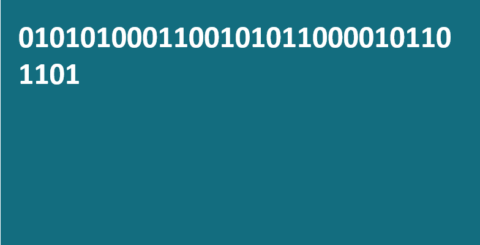
Team
Prof. Dr. Michaela Mahlberg
Departmentsprecherin
Evelyn Gribatsch
Studentische Hilfskraft
Afeefa S., B. Sc.
Studentische Hilfskraft
Gastwissenschaftler/-innen
Zweitmitglieder
Lehrbeauftragte und ehemalige Mitglieder
| Name | Position/Role | Term |
|---|---|---|
| Christian Sandig, M. A. | Geschäftsführer | bis 31.06.2025 |
| Julia Neubauer, B. A. | Studentische Hilfskraft | bis 30.03.2025 |
| Josephina Imhoff B. Sc. | Studentische Hilfskraft | 01.10.2024 bis 15.02.2025 |
| Tugsbayar Batbayar, B. A., Erlangen | Studentische Hilfskraft | bis 30.09.2024 |
| Prof. Dr. Peter Bell, Marburg | Professor | bis 30.09.2021 |
| Jonas Betzendahl, M.Sc., Bielefeld/Erlangen | Lehrbeauftragter | Sommersemester 2022 – Sommersemester 2023, Wintersemester 2024/25 |
| Dr. Anna Lindroos Cermakova, Lancaster (UK) | Lehrbeauftragte | Sommersemester 2024 |
| Dr. Lisa Dieckmann, Köln | Lehrbeauftragte | Wintersemester 2021/22 |
| Dr. Markus Frank, München | Lehrbeauftragter | Sommersemester 2023 |
| Katrin Fritsch, M.Sc., Berlin | Lehrbeauftragte | Sommersemester 2022 – Wintersemester 2022/23 |
| Dr. phil. Franziska Klemstein, Weimar | Lehrbeauftragte | Sommersemester 2022 & Sommersemester 2023 |
| PD Dr. Florian Rabe, Erlangen | Vertretungsprofessor | Sommersemester 2024 |
| Johannes Sauter, M.A., München | Lehrbeauftragter | Sommersemester 2022 |
| Prof. Dr. Heidrun Stein-Kecks | Zweitmitglied | bis 30.03.2022 |
